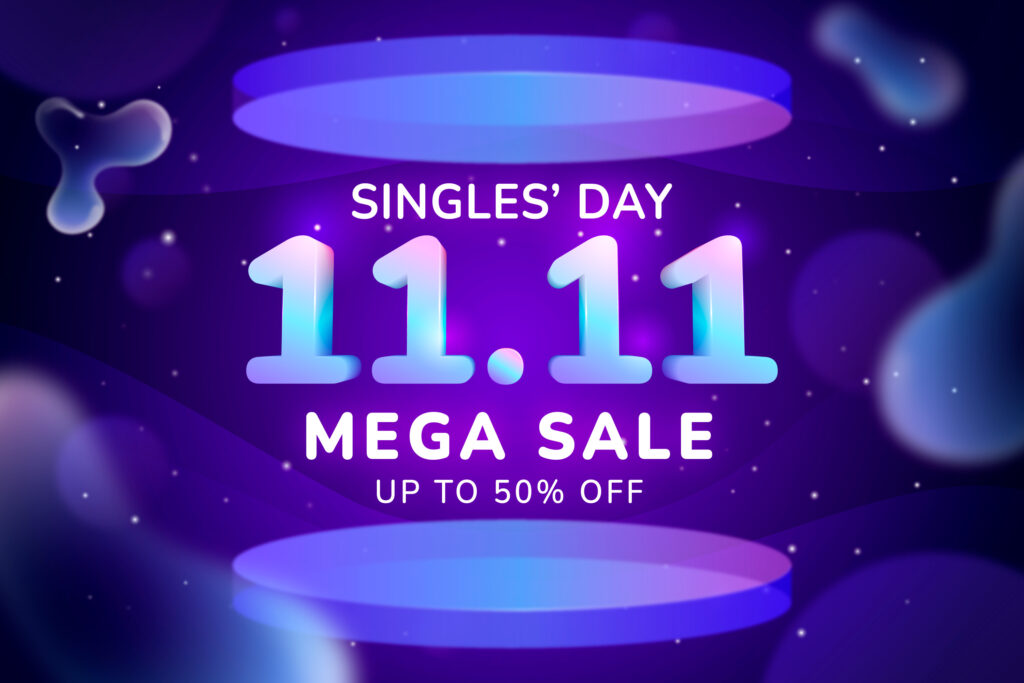

KOL marketing has become a significant force in shaping today’s e-commerce scene. But what is KOL marketing, and why does it matter? Read on to find out more about its definition and significance, the differences between KOLs and KOCs, distinctions from influencer marketing, its impact on Thailand’s e-commerce, and strategies for businesses to adapt to this evolving landscape.

KOL marketing involves businesses partnering with knowledgeable individuals to convey positive messages about their brand. These KOLs are usually experts in their fields, like authors, industry experts, social media influencers, or celebrities. Companies may choose to work with KOLs that embody the brand’s image, leveraging their expertise in the subject to convey positive messages.
KOLs have significant followers within their field of expertise. On the other hand, Key Opinion Consumers (KOcs) are everyday consumers who may not have a large following but possess considerable influence within their smaller social circles. While KOLs attract attention from a broader audience due to their reach, KOCs are respected within their communities for their genuine and relatable opinions about brands and products. Despite having smaller followings, KOCs wield substantial influence because their recommendations and experiences carry weight among their peers.
It is important to understand and differentiate KOLs and KOCs correctly. In marketing strategies, both KOLs and KOCs are known to be valuable assets for brands looking to reach and engage with their target audiences.

KOL Marketing and Influencer Marketing can be used interchangeably; however, there are still minor differences between the two. KOL Marketing is known to be suited for niche and targeted reach, involving partnerships between brands and recognized experts in the industry. On the other hand, Influencer Marketing partners with individuals with a broader appeal, making it great for spreading brand awareness.
The differences between KOL Marketing and Influencer Marketing include, but not limited to:
KOL Marketing: Involves expertise in specific industries or niches, known as Key Opinion Leaders (KOLs).
Influencer Marketing: Involves individuals like celebrities, social media personalities, or bloggers, whose influence comes from their much broader following and engagement.
KOL Marketing: KOLs have a highly engaged, targeted audience seeking expert advice within specific industries.
Influencer Marketing: Influencers may have a wider array of audiences interested in entertainment, lifestyle, or personal branding, though their influence remains significant.
KOL Marketing: Content by KOLs is mostly educational, informative, or industry-specific, reflecting their expertise and authority.
Influencer Marketing: Influencers like to create lifestyle-oriented, entertaining content relatable to their audience’s interests, including product reviews and collaborations.
KOL Marketing: Often involves long-term partnerships or endorsements with KOLs closely aligned with the brand’s values.
Influencer Marketing: Collaborations range from one-time sponsored posts to ongoing partnerships, depending on campaign objectives.
It’s worth noting that certain individuals can embody both roles of a KOL and an influencer, blurring the distinction between the two.
Mark Wiens, an American food blogger with over 10 million YouTube subscribers, serves as a prime example. Renowned for his culinary expertise, Wiens captivates audiences worldwide through engaging videos that explore new restaurants.
His influence extends beyond YouTube, as evidenced by his participation in the Max Originals series ‘Food Affair with Mark’ and ownership of the acclaimed Bangkok restaurant, Phed Mark.
The increased use of social media platforms has led to a surge in KOL Marketing within the e-commerce landscape. Thailand’s internet landscape has changed over the past decade, now primarily shaped by mobile usage. Furthermore, social media usage among Thai internet users has surged, with over half of the population engaging in various platforms daily.
As people increasingly rely on social media for product guidance and inspiration, KOLs have emerged as trailblazers in molding consumer behavior and influencing online purchasing choices.

E-commerce giants have adapted to these changes, as evidenced by collaborations between Lazada, Thai celebrities, and influencers in promoting their annual shopping event, Lazada 11.11. Here, we see the partnership between popular Thai KOLs across various categories, from prominent actors and musicians to beauty, fashion, and lifestyle influencers, to create engaging content that promotes exclusive deals and discounts on their platform. These KOL and influencer-led marketing campaigns have helped Lazada drive significant traffic to its platform and, as a result, achieve record-breaking sales over the past few years. In 2022, Lazada announced its second consecutive year of profitability, marking a notable increase of 82% to 413 million baht. Simultaneously, revenue surged by 40.8% to reach 20.6 billion baht.
These tactics have also been implemented by other e-commerce players in Thailand, such as the Shopee 12.12 Birthday Sales, which leveraged the reach that influencers and KOLs have in order to generate buzz around its sales events and attract a large number of shoppers to its platforms. In 2021, official reports disclosed that Shopee witnessed a sixfold increase in application visits compared to previous figures. Additionally, 850 million discount codes were used during their 12.12 sale.
Many local businesses have begun adapting KOL marketing into their tactics to enhance their e-commerce presence. For instance, take Pomelo Fashion, which frequently collaborates with local fashion bloggers, stylists, and influencers to showcase its latest collections, trends, and sales, which allows them to reach fashion-conscious consumers through authenticity and relatable content.
Businesses looking to adapt to the evolving e-commerce landscape in Thailand can start leveraging KOL marketing effectively through the following strategies:
Collaborating with macro-influencers and celebrities may be costly for some businesses, thus identifying relevant micro-influencers for possible partnerships can yield impactful results for an affordable price.
Engage and encourage your consumers to create and share content featuring your products or services on social media. We’ve had multiple success stories with the brands we’ve worked with when it comes to offering consumers incentives such as discounts or giveaways for UGC.
Work with KOLs or local influencers who genuinely align with your brand values and offerings in hoping to build long-term partnerships with them.
Holidays, festivals and events are perfect for running KOL Marketing campaigns. Collaborate with KOLs or influencers in creating content around these dates, such as offering promotions.
Utilize analytics tools to track the performance of your KOL Marketing campaigns and monitor key metrics to optimize future campaigns accordingly.
By implementing these strategies, businesses in Thailand can effectively leverage KOL Marketing to increase brand visibility, engage with their target audience, and drive sales in the competitive e-commerce landscape. If you need some help or guidance, our friends at Kolbase have an extensive list of influencers whom they can connect you with, ensuring that your KOL Marketing efforts are streamlined and successful.

In conclusion, KOL Marketing offers many advantages in the e-commerce market. By providing authenticity and personalization in a marketing approach, consumers will often perceive recommendations from these influencers as genuine and trustworthy, due to their credibility and relatability, enabling them to influence their followers’ opinions. Moreover, some KOLs prefer to create self-made content, which would resonate with their audience much more effectively when compared to traditional advertisements. KOL Marketing allows brands to reach highly targeted and niche audiences as well, so by partnering with the right people, e-commerce companies can effectively increase brand awareness, drive traffic to their websites, and boost sales. This allows brands to stay competitive and engage with their target audience effectively.




Thailand’s e-commerce market is on an exciting growth trajectory, expected to hit 750 billion THB by 2025. With digital adoption soaring and platforms like Shopee and Lazada driving massive sales, brands are doubling down on ads, KOLs, and personalized strategies to stay ahead. Ready to tap into this booming digital economy?

What are Fulfillment Centers? A fulfillment center is a specialized warehouse where products are stored, processed, and shipped to customers. Acting as a third-party logistics

Driving eCommerce Growth with Purchase Incentives Customer Purchase Incentives: the Key to eCommerce Growth The eCommerce industry is growing fast, thanks to new technology and
Customer loyalty drives long-term success in e-commerce by creating deep emotional connections with your brand. This article explores various types of loyalty and practical strategies